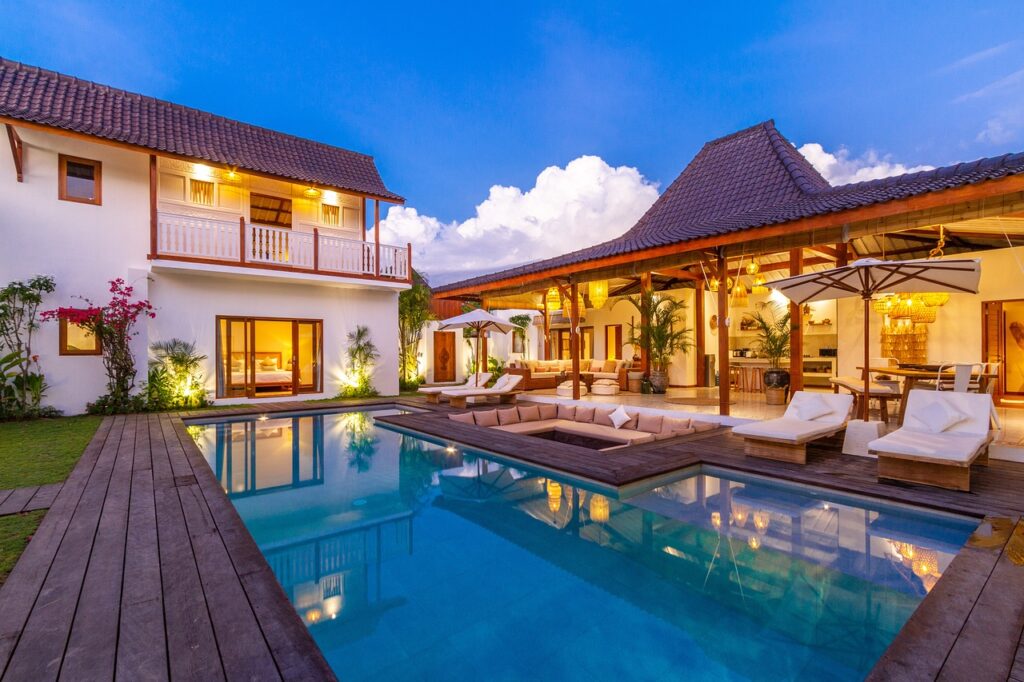Sustainable Vacation Home Development: Eco-Friendly Practices and Their Benefits

As the world becomes more environmentally conscious, the demand for sustainable vacation homes is on the rise. Travelers are increasingly seeking eco-friendly options that minimize environmental impact while providing luxurious and comfortable experiences. For developers and homeowners, investing in sustainable vacation home development is not just about meeting this demand—it’s about embracing practices that benefit both the planet and your bottom line. In this blog, we’ll explore the key eco-friendly practices in sustainable vacation home development and the benefits they bring.
1. Energy Efficiency: Reducing Consumption, Increasing Savings
One of the most significant aspects of sustainable vacation home development is energy efficiency. By incorporating energy-saving technologies and designs, you can significantly reduce the energy consumption of your property. Here’s how:
Solar Panels: Harnessing solar power is a powerful way to reduce reliance on traditional energy sources. Installing solar panels can lead to significant energy savings and even allow for energy self-sufficiency.
Insulation and Glazing: Proper insulation and high-quality glazing keep homes cool in the summer and warm in the winter, reducing the need for excessive heating and cooling.
Energy-Efficient Appliances: Using appliances with high energy efficiency ratings helps minimize energy use without compromising functionality.
2. Water Conservation: Smart Systems for Responsible Living
Water conservation is another cornerstone of sustainable development. Implementing smart water systems not only conserves water but also reduces utility costs, making your vacation home more appealing to eco-conscious travelers.
Low-Flow Fixtures: Installing low-flow showers, faucets, and toilets can significantly reduce water usage without sacrificing comfort.
Rainwater Harvesting: Systems that collect and store rainwater for non-potable uses, like irrigation, can dramatically cut down on water consumption.
Greywater Recycling: Recycling greywater from sinks and showers for landscaping purposes is an effective way to make the most of available water resources.
Keywords: water conservation, smart water systems, rainwater harvesting, greywater recycling
3. Sustainable Materials: Building for the Future
The materials you choose for your vacation home play a crucial role in its sustainability. Opting for eco-friendly, sustainable materials reduces the environmental impact of construction and creates a healthier living environment.
Recycled and Reclaimed Materials: Using recycled wood, metal, and other materials reduces the need for virgin resources and minimizes waste.
Locally Sourced Materials: Choosing materials from local suppliers reduces transportation emissions and supports the local economy.
Non-Toxic Paints and Finishes: Selecting paints and finishes that are free from harmful chemicals ensures better indoor air quality and a healthier environment for occupants.
Keywords: sustainable materials, eco-friendly construction, recycled materials, non-toxic paints
4. Eco-Friendly Landscaping: Enhancing Beauty While Preserving Nature
Landscaping is a vital component of any vacation home, and sustainable practices can enhance the beauty of your property while protecting the surrounding environment.
Native Plants: Incorporating native plants into your landscaping reduces the need for excessive watering and chemical treatments, as these plants are naturally adapted to the local climate.
Xeriscaping: This landscaping technique focuses on water conservation through the use of drought-resistant plants and efficient irrigation systems.
Composting: Using compost as fertilizer enriches the soil without the need for synthetic chemicals, promoting healthy plant growth and reducing waste.
Keywords: eco-friendly landscaping, native plants, xeriscaping, composting
5. Benefits of Sustainable Vacation Home Development
Developing a sustainable vacation home offers numerous benefits, both for homeowners and the environment:
Attract Eco-Conscious Travelers: With more people prioritizing sustainability, a green vacation home can attract a broader range of guests willing to pay a premium for eco-friendly accommodations.
Lower Operating Costs: Energy-efficient systems, water conservation, and sustainable materials all contribute to lower utility bills and maintenance costs over time.
Increased Property Value: Sustainable homes often command higher market values due to their energy efficiency, lower environmental impact, and modern appeal.
Positive Environmental Impact: By reducing your vacation home’s carbon footprint, you contribute to the fight against climate change and help preserve natural resources for future generations.
Keywords: benefits of sustainable development, eco-conscious travelers, lower operating costs, increased property value
Conclusion
Sustainable vacation home development is not just a trend; it’s a responsible and rewarding approach to creating luxurious, eco-friendly spaces that resonate with today’s environmentally conscious travelers. By implementing energy-efficient systems, conserving water, using sustainable materials, and practicing eco-friendly landscaping, you can develop a vacation home that not only generates great revenue but also contributes positively to the environment.
Ready to take the next step in sustainable vacation home development? Contact us today to learn more about how we can help you create a vacation home that stands out in the market while embracing the best eco-friendly practices.
Keywords: sustainable vacation home development, eco-friendly practices, vacation home benefits, green vacation home development
